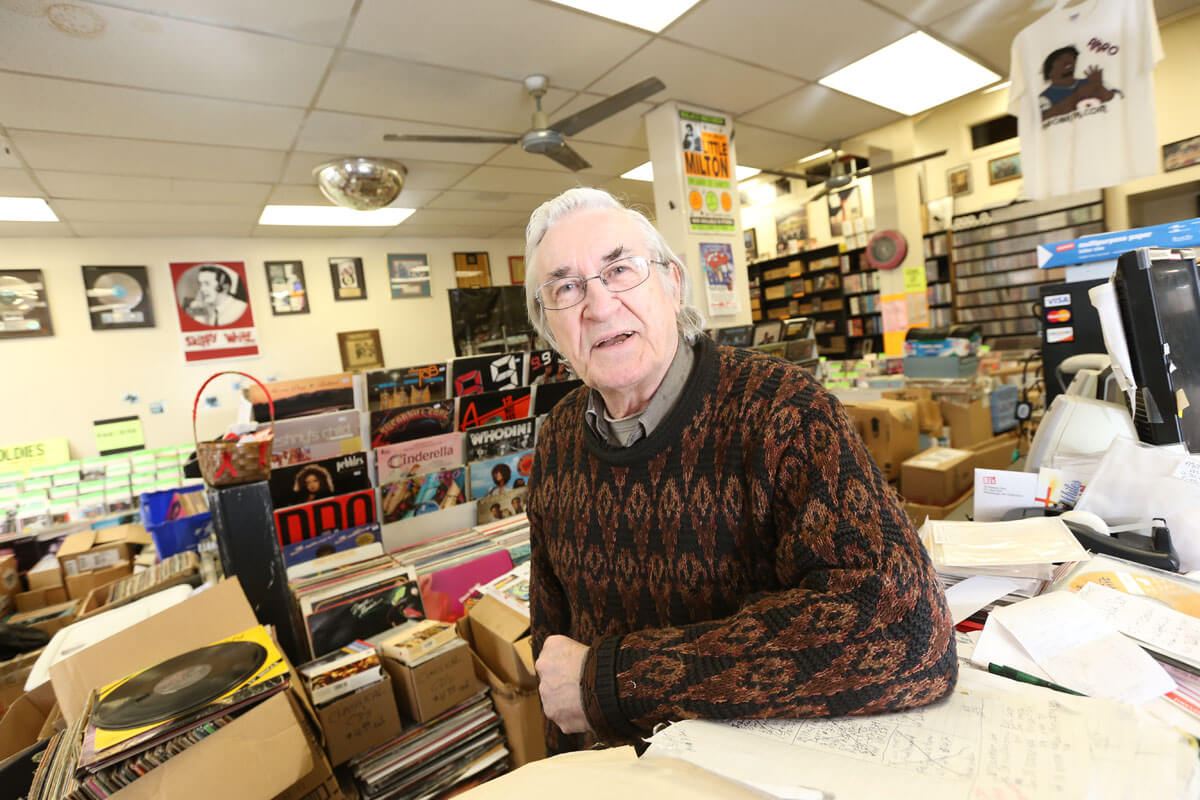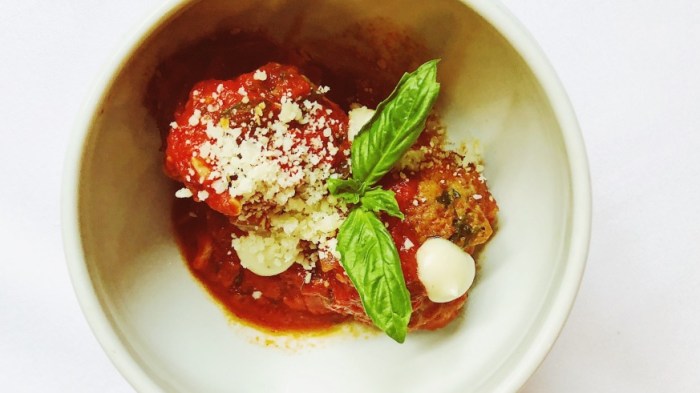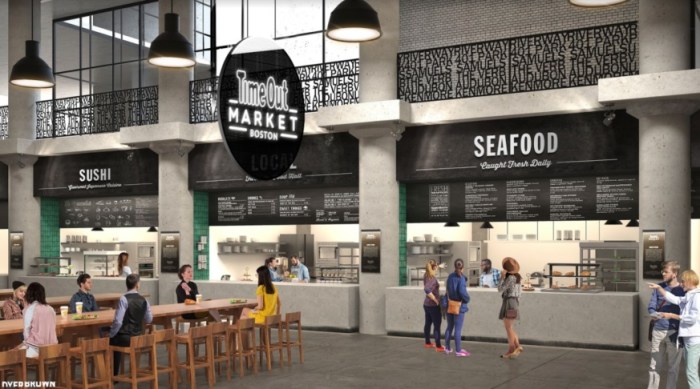Skippy White is surrounded by the clutter of his life’s work. A Prince album here. An Aretha Franklin live album there. A particularly worn Led Zeppelin II sits atop a heap of other records, near stacks of gospel cassettes. Cardboard boxes are everywhere. At 78, he’s the city’s oldest record store owner. He’s been running his own shop for 54 years. White’s life has been defined by music — he was the first deejay in Boston to play R&B records in the early 1960s, he said, and the first to sell hip hop records in the city. He doesn’t have any hobbies. This space — Skippy White’s CDs and Records in Roxbury’s Egleston Square — is his life. It’s also a bit of a mess. Some of the records are alphabetized. Some are not. There doesn’t appear to be much rhyme or reason to the organization, he’s told. He shrugs.
“A lot of the people who come in and are looking for vinyl would rather go through a mixed box because you never know what you’re going to find,” said White, whose given name is Fred. “They’d actually prefer it that way.” White has collected records since he was a teenager. He traces his love of R&B to hearing The Orioles cover “Crying in the Chapel” on the radio as a kid growing up in Waltham.
White thought he wanted to be a writer and studied journalism at Boston University for three years, but had to drop out in 1957 after he was laid off from his job at Raytheon and could no longer afford the tuition. He began buying records at warehouses, trading with other record collectors, then selling records to such collectors, then selling the records to stores. At 20 he landed a gig working at Smiling Jack’s College Music Shop. By 23, he opened his own store on Washington Street in Roxbury. He also began deejaying on the radio. He says he was the first deejay in town to play R&B records of the day. The year was 1961. “All of the disc jockeys were white and they were playing Frank Sinatra and Dean Martin. I’d call it white elevator music,” said White, now a grandfather of two who lives in Natick. “I started playing two hours of rhythm and blues.” Other American cities, said White, were playing R&B, but not Boston.
“Boston’s always had a little bit of a problem with race relations,” he said.
A generation later, in 1979, he was at the forefront of bringing another genre to the local masses. White was the first to sell The Sugarhill Gang’s “Rapper’s Delight” locally, meaning he could be considered to be the man who physically brought hip hop to Boston. He remembers selling out of the first 50 copies in about one day. That was more than 35 years ago. Nowadays, surviving as a record store owner in the age of Spotify and other digital music services is a challenge, he concedes. The people who walk into his store can usually be separated into two groups: old luddites who don’t want to use a computer to find and download music or young hipsters who fetishize vinyl. Vinyl sales have increased in recent years as CD sales have eroded, he said. Yes, he does do some sales online to specialty collectors. It helps him stay in business, he said.
He doesn’t blame consumers for flipping his industry on its head. The price of CDs has always been exorbitant, he said. Online file sharing is a result of consumers realizing they were being had. The suits in the music industry got too greedy, he said. “They shot themselves in the foot.” Count Eugene Thomas among the luddites. The 56-year-old who now lives in Bourne, drove from the Cape in search of a particular O’Jays album. He’s been frequenting White’s record stores since the early 1970s. “If you didn’t know the songs, you’d come and hum it and he’d find it for you,” said Thomas. “They don’t have spots like this anymore.”
No, White said, modern music doesn’t hold much appeal for him. He has no hot takes regarding Kanye West.
“I like a lot of the older music,” he said. “We used to do a thriving business in rap. But over the last five or six years rap has gone straight downhill in terms of sales. It’s probably because of the downloading.” White, who still host two radio shows on the weekends and is currently writing a book about his career, scoffs at the notion of retirement.
“What would I do? Sit and watch TV? I’m not a couch potato. I have to keep active,” he said. “I’ve got to keep going. This is what I do. I still love the music.”
Meet the septuagenarian who introduced R&B and hip hop to Boston

Nicolaus Czarnecki/Metro














